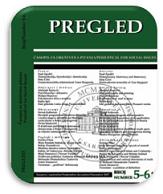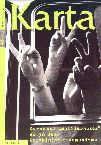
International Symposium „Identity and Globalization“
Međunarodni naučni simpozij „Identitet i globalizacija“
Međunarodni naučni simpozij „Identitet i globalizacija“, Zenica 18-20. 12. 2008.
More...
Međunarodni naučni simpozij „Identitet i globalizacija“, Zenica 18-20. 12. 2008.
More...
Keywords: culture; Modernism; lifestyle; technical progress; historical spirit
If we were to look for the main thread of Georg Simmel’s philosophy, in which his ideas make the loudest echo, it would, without a doubt be the notion of culture and phenomena standing in relation of subject-object or soul-spirit. Simmel is categorical in stating that the spirit is another human instance, but of the kind that produces its own creations which keep existing in peculiar autonomy, independent of the maker.
More...
Keywords: political style; political temperament; political culture; political scandals and affairs; political speech
The author offers an analysis of political style and political temperament in the context of a specific individual behavior, collective system of beliefs or model of group behavior, by bringing them in connection with the representatives of political elites and political parties. The author attempts to find a link between personal characteristics and skills and ways of manifestation and fulfillment of specific political interests.
More...

Keywords: Bosnia and Herzegovina; European Union; NATO; international community; defense; military force; defense policy; security; security policy; agreement
After a dense succession of events in former Yugoslavia, which peaked with the international recognition of Bosnia and Herzegovina (April 6 and May 21 1992) and after all the events that took place in and around Bosnia and Herzegovina; international community took a more dynamic interest in the country (in political, military, safety and economic sector). One clear conclusion can be drawn after the analysis of international subjects’ engagement in Bosnia and Herzegovina: international players had a key peacekeeping role in the country, as well as an important role in the process of creation of a safe environment for all the citizens. From the point of view of Bosnia and Herzegovina, its integration to European and world processes and meeting conditions for security integration, we can summarize the role of the international actors, especially the international military forces in Bosnia and Herzegovina: The international forces supported by their countries’ policies have contributed the safety of Bosnia and Herzegovina, not only in the sense of preserving peace, but also in the sense of contributing processes in the defense and security sector: in an organizational, functional and material sense, as well as in the sense of changing the mentality within the Armed Forces of Bosnia and Herzegovina. Control over the B&H Armed Forces was implemented to a greater extent by the international community through its military structures, then by the relevant entity and state structures of Bosnia and Herzegovina.
More...
Keywords: Polish-Ukrainian relations; Polish-Ukrainian history;
On the difficult relations between the Polish and the Ukrainian inhabitants of the Wolyn region, murders on the Polish neighbours, but also help actions of the Ukrainian living there.
More...
Keywords: Lvov / Lwów / Lviv; Polish-Ukrainian relations; Ukrainian Insurgent Army (UPA); national minorities; borderland
One of the main aims of the Ukrainian Nationalist Organisation was the attempt of creating an independent Ukrainian state. In 1943 many Polish inhabitants of the Wolyn region have been killed by the Ukrainians.
More...
Keywords: Institute of National Remembrance; Jews in Poland; World War II
On the murder of more than 10 Jews in the village Rechta (Poland) in 1943.
More...
Keywords: Polish history; Poles in the Russian army; Lucjan Żeligowski; Polish-Lithuanian conflict; Polish-Lithuanian relations; Polish aeronautics; Zeppelin in Poland
A recollection of Andrzej Brochocki, who was a soldier in the Balloon Division of the tsar army as well as an article on the Polish aeronautics after the World War I. With photo material.
More...

Keywords: album Lodzer Izkor-Buch; Dispersal Committee; World War II; Łódź; Holocaust; Jewish political party Bund
Izaak Lewin on the planned evacuation of the town of Łódź in 1939 before the beginning of twh World War II.
More...
Keywords: farm novel; plaasroman; South African literature; postcolonialism; J.M. Coetzee; Nadine Gordimer; Doris Lessing
The article contains a generic analysis of a traditional South African farm novel (plaasroman) including current reception of this genre within contemporary post-colonial fiction. A classic plaasroman was based on social values such as nationalism, racism and patriarchalism, which constituted a sense of national identity of the Boers, but also became the basis of the institutionalized racial discrimination. For this reason, the main narrative theme of plaasroman has been critically rewritten by the writers who contested colonial authority. These reinterpretations are being discussed based on three examples — Life and Times of Michael K. by J. M. Coetzee, The grass is singing by Doris Lessing and The Conservationist by Nadine Gordimer.
More...
Keywords: 17th century; ephemeral newspaper; moralistic treatise; news (news texts); genologic differentiations
The author’s objective is to discuss two different genres of the seventeenth century ephemeral papers which Konrad Zawadzki, the researcher of the origins of the Polish press, has included in a common group of so called “ephemeral newspapers”. The author of the article distinguishes, among those texts, extensive moralistic treatises, characterised by painstaking composition, expanded descriptive and instructive plots and domination of informative and didactic functions. In the seventeenth century, side by side with them the papers of small volume were printed and their authors and publishers were focussed on obtaining commercial goals. They differed a lot from didactic treatises with the form of communication: the content was often expressed through the technique of enumeration and accumulation of many sketches, appealing to the recipient’s imagination and emotions.
More...
Keywords: Horace Walpole; gothic literature; bourgeoisie; aristocracy; Marx; Freud
This article discusses The Castle of Otranto by Horace Walpole as the first gothic work dramatizing, through the theme of “usurpation”, the emergence of the new but “greedy” bourgeoisie in England in the eighteenth century as a threat against the long-established, and from Walpole’s perspective, “divinely ordered” aristocratic system. Au fait with the worries and expectations of aristocracy, for he is the son of Robert Walpole (the first Prime Minister of England), and a member of nobility and the Parliament, Walpole, in his work, cannot help defending the established system against the emerging bourgeois paradigm. In the article, Walpole’s concern with the chaotic state of his country, which he reveals through building a devastating class conflict in Otranto, will be analyzed with the help of biographical, historical, and Marxist approaches. Finally, by referring to the Freudian theory of “wish-fulfillment through dreams”, Walpole’s solution for the conflict will be shown to be a self-gratifying one, satisfying the author’s aristocratic self.
More...
Keywords: Internet; the participatory culture; meme; Richard Dawkins; demotivator
The article focuses on the definitional problems of memes and the Internet memes. The presented review of the cyber memes` definition is claimed to be incomplete, however, helps to show the main difficulties connected with the attempt to use the term (which has rather long and tempestuous history) to describe the specific, cultural phenomenon. The large part of the essay is devoted to the deliberation about demotivators — the topic which has been extremely popular recently. Demotivators distinugish themselves out of the wide range of audiovisual forms thanks to not only the compostition (similar to the emblem) but also the meaning and functional diversity.
More...
Shakespeare and genre. From Early Modern Inheritances to Postmodern Legacies, ed. by Anthony R. Guneratne, Palgrave Macmillan, New York 2011, pp. 314 Michał Głowiński, Rozmaitości interpretacyjne. Trzydzieści szkiców, Fundacja Akademia Humanistyczna, Instytut Badań Literackich, Warszawa 2014, ss. 287 Gabriele Rita Hauch, Binden und Befreien. Witold Gombrowiczs Diskurs der Zweifaltigkeit, Duncker & Humblot, Berlin 2014, S. 557 Incarnations of Material Textuality. From Modernism to Liberature, eds. Katarzyna Bazarnik, Izabela Curyłło-Klag, Cambridge Scholars Publishing 2014, pp. 154. Dobrawa Lisak-Gębala, Ultraliteratura. O strategiach transmedialnych i poszukiwaniu pozawerbalnego we współczesnej literaturze polskiej, UNIVERSITAS, Kraków 2014, ss. 267 Steven Pinker, The Sense of Style: The Thinking Person’s Guide to Writing in the 21st Century, Penguin Books, London 2014, pp. 359 A history of Emotions, 1200 – 1800. (Studies for the International Society for Cultural History), ed. Jonas Liliequist, Pickering & Chatto Publishers, Londyn 2012, pp. 259
More...
Keywords: Czesław Miłosz; haiku; sensuality; translation; imaging
The article presents a multifaceted analysis of the underresearched complex relations of the works by Czesław Miłosz and the poetics and philosophical ‘legacy’ of haiku. Firstly, the author examines the haiku-like texts by Miłosz, focusing on sensual imagery employed by classical haijins and the Polish poet. The next section is devoted to re-interpretation of the metaliterary aspects of Miłosz’s texts concerning Far Eastern patterns of poetry. The final part deals with his translations of classical and contemporary haikus, confronting the work of Miłosz with the attempts of other translators and with original texts. The comparative analyses lead to a revision of the common opinions on Miłosz’s translations.
More...
Keywords: Wiechert; conservative revolution; Buchenwald; National Socialism; inner emigration
Ernst Wiechert was one of the most important representatives of German inner emigration. Nowadays he is almost entirely forgotten. The aim of this article is to show his literary output according to his own memoirs Jahre und Zeiten that shed different light on the interpretation of his work, but also on his attitude and own evaluation of work, often conditioned not only by political or social considerations, but also, to a large extent, by what happened in his personal life. This article is an attempt to provide, in general terms, an analytical sketch of the writer’s works, from his first novels written in times of Conservative Revolutionary movement — Der Totenwald; Der Wald — via growing detachment from national views and the subject of The First World War — Der Knecht Gottes Andreas Nyland; speeches from the years: 1933 Der Dichter und die Jugend and 1935 Der Dichter und seine Zeit — to his autobiographical account of the concentration camp Buchenwald — Der Totenwald, novel Das einfache Leben or Missa sine Nomine.
More...
Keywords: fantasy; fantastic literature; non-mimetic literature; taxonomy; literary theory
The present article attempts at a critical discussion of taxonomical proposals of British scholar Farah Mendlesohn included in her study Rhetorics of Fantasy (2008). The study in question can be probably regarded as the most significant recent item in the academic discourse devoted to the theory (and taxonomy) of “fantastic” or non-mimetic literature, started more than 40 years ago by such notable researchers as, for example, Tzvetan Todorov or Eric Rabkin. From several reasons Mendlesohn’s study seems to occupy a special position in this discourse; the article analyzes both its indubitable achievements and possible shortcomings.
More...
Several decades into the digital age, it is clear we are living through a major turning point in the evolution of human civilization. Networked computers and mobile devices are changing the world — and us — in manifold ways, driving the emergence of a global society and culture. What that culture will look like and how it will function is, at this point, hard to predict, but one possible feature is a single world language spoken and understood by all. The current leading candidate for that role is, of course, English, the lingua franca of the early 21st century.
More...